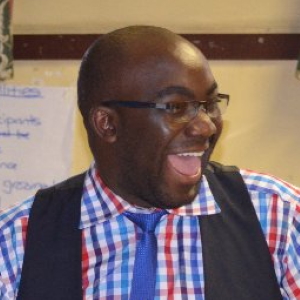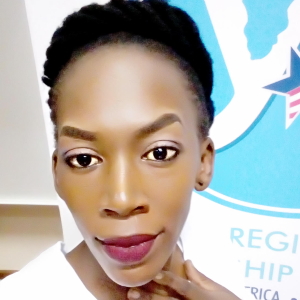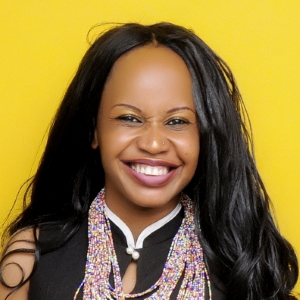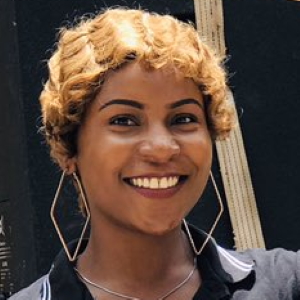Background
The Programme of Action adopted by 184 UN member states in Cairo recognises the importance of human rights in protecting and promoting reproductive health. The Cairo Programme strongly endorses a new strategy for addressing population issues, focused on meeting the needs of individual women and men rather than on achieving demographic targets. A key to this approach is empowering women and protecting their human rights, particularly those relevant to reproductive health. The International Conference on Population and Development-25 in Nairobi (2019) reaffirmed the UN and its member countries’ commitment to developing focused strategies to provide comprehensive equitable sexual and reproductive health to everyone. Some of the main targets to be met by 2030 are the triple zero goals:
- Zero unmet need for contraceptive information and supplies
- Zero preventable maternal deaths
- Zero gender-based violence
However, global pandemics such as Novel Corona Virus 19 have contributed to a stall in progress. With governments taking drastic preventive measures, these measures in themselves have put women and girls at higher risk of gender-based violence when there is an urgent need to provide young people with lifesaving SRHR services. These measures have also continued to pose an inherent risk that increases young peoples’ vulnerability to violence, poverty, sexual and gender-based violence, abuse and exploitation, harmful practices and reproductive health-related morbidity and mortality. Access to services is a central concern surrounding the promotion of sexual and reproductive health and rights (SRHR) of young people. A more ambitious approach toward SRHR is needed, as is the provision of services that tackle sexual and gender-based violence, sexual diversity, discrimination, relationship issues, and fears and concerns about sex and sexuality. An inclusive SRHR approach recognises that people, including young people, have the right to a SAFE, pleasurable and satisfying sex life. How true this is for young people in Africa is a question that beckons a further discussion with young people and to provide them with the skills and competencies to advocate for SRHR. It is therefore essential to build the capacity of young people and provide them with an understanding of sexual and reproductive health and rights and how these can be implied from national laws, constitutions and in regional and international human rights treaties. These skills and competencies should prepare young people to hold governments accountable as they develop Covid-19 preventive measures and to advocate for the provision of SRHR services. Young people in Africa are a force of change, and we must further provide them with the skills and competencies that will inspire them to drive solutions and advocacies to promote SRHR.
The objective of the Webinar
This webinar aims to enhance the capacities of young people from MenEngage Africa network countries to address sexual and reproductive health and rights from a human rights perspective and to discuss the ramifications of COVID-19 on SRHR. The webinar seeks to achieve the following specific objectives:
- To discuss the impact of Covid-19 preventive measures on access to SRHR services for young people.
- To discuss approaches to improve advocacy and access to services for young people despite the challenges of Covid-19.
Participants
This Webinar is open to young people from across Africa, especially young people from across the MenEngage Africa network.
Expected outcomes:
It is anticipated that by participating in the Course, participants:
- Will share experiences on how Covid-19 has affected access to SRHR for young people.
- Will acquire skills and competencies to promote SRHR, despite Covid-19 containment measures.
- Will be able to discuss how global pandemics and government actions affect the realisation of SRHR for young girls in Africa.
Methodology
The webinar will be facilitated on Zoom. It is scheduled for the 27th of May 2018 from 10 am GMT to 12 noon GMT. The call will hold on Zoom with the following details:
Join Zoom Meeting
https://zoom.us/j/95502441856?pwd=VHZnUWp5NFFNTFN6UnVKSkozblV4UT09
Meeting ID: 955 0244 1856
Password: 864788
Panellists

Festus Kisa: Programme Coordinator, Q-Initiative Eldoret, Kenya |
Festus Ibanda Kisa is a sexual and gender minorities activist and sexual reproductive health and rights advocate for Q-Initiative Eldoret, where he has been a Programme Co-ordinator since 2013. Festus has a background in social work, HIV testing and counselling, human hights for sexual minorities. He is passionate about equality and non-discrimination, increased awareness on the sexual reproductive health and rights of lesbians, gays and bisexuals, protection and upholding of the human rights of sexual and gender minorities, creation of safe social spaces for sexual minorities and changing the narrative of sexual and gender minorities (from that of victims and oppressed to dignified citizens involved in nation-building). |

Tanyaradzwa Nyakatawa: Clinic-CBO Collaboration (C3) Coordinator, SafAIDS |
Tanyaradzwa Nyakatawa is working with SAfAIDS as The Clinic-CBO Collaboration (C3) Coordinator for Zimbabwe. He is the Youth Representative for the Zimbabwe National Family Planning Board of Directors and has a Master of Science Degree in Development Studies. Tanyaradzwa has over six years’ experience in youth programming and management of youth development programmes mainly working in the area of sexual and reproductive health and rights. |

Urbenia Kgwarae: MenEngage Africa Youth Chairperson |
Urbenia Unaswi Kgwarae is MenEngage Africa Youth Chairperson, a Southern Africa YALI Alumni under the Civic Leadership Track Cohort 16. She has an Associate Degree in Journalism and Media and a BA (Hons) in Broadcasting and Journalism from Limkokwing University of Creative Technology Botswana. She is self-driven and loves working with people. She is a human rights activist working for Rainbow Identity Association (RIA). She has volunteered for LeGaBiBo (The Lesbians, Gays & Bisexuals of Botswana) in the past as a peer educator for her regional support group. She attended trainings on various issues from human rights, SRH, LILO (Looking In and Looking Out). She is a litigator for the registration of LeGaBiBo as a society. She worked with BOFWA (Botswana Family Welfare Association) referring LGBTI persons for HIV testing and STI screening. |

Shira Natenda: Executive Director of Golden Centre for Women’s Rights Uganda |
Shira Natenda is a feminist and human rights defender and holds a Bachelors’ degree in Guidance and Counseling with other expertise in Gender Justice, Sexual Reproductive Health, HIV/AIDS treatment literacy and Transformational leadership. She is currently the Executive Director of Golden Centre for Women’s Rights Uganda, a group for and by women migrant/refugee sex workers and native sex workers. She is passionate about empowering fellow women in finding their purpose. |

Harriet Chibuta: Executive Director of Young Women in Action Zambia |
Harriet Chibuta is a University of Zambia graduate with over eight years voluntary and professional leadership experience in research, project implementation, management and monitoring. She is currently the Executive Director of Young Women in Action (YWA), a youth-led, youth-focused not-for-profit Non-governmental organization working to empower adolescent girls and young women in Zambia. Harriet Chibuta has a passion to serve and empower the vulnerable in society, especially young women and children. She believes that an empowered girl or young woman effectively contributes positively not only to their personal development but the development of the entire community. |
